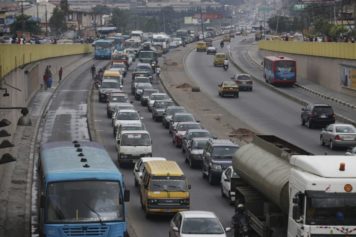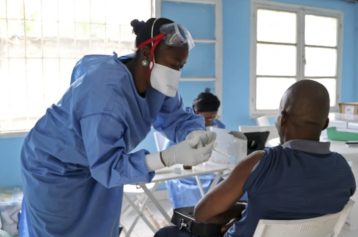As the deadly Ebola virus spreads in Guinea, Liberia and Sierra Leone, killing 467 people thus far, health ministers from 11 West African countries held an emergency meeting in Ghana to create a plan to fight the brutal disease.
It’s being called the worst Ebola outbreak the world has ever seen, involving three countries in West Africa and seen in capital cities, accelerating the fear of a deep and widespread outbreak.
This fear brought together the ministers in an emergency two-day meeting in Accra, Ghana, called by the World Health Organization (WHO), where they reportedly committed to better surveillance to detect cases of the virus, enhanced cross-border collaboration, better engagement with local communities, and closer cooperation with the United Nations, WHO and other partners.
The ministers also recommended setting up a sub-regional control center in Guinea to coordinate technical support.
There have been a total of 759 people infected in Guinea, Liberia and Sierra Leone, and 467 of them have died.
Dr. Peter Piot, the scientist who first discovered the Ebola virus in the 1970s, told CNN that the current situation is “unprecedented.”
“One, [this is] the first time in West Africa that we have such an outbreak,” he said. “Secondly, it is the first time that three countries are involved. And thirdly it’s the first time that we have outbreaks in capitals, in capital cities.”
The health ministers from these countries attended the meeting: the Democratic Republic of the Congo, Gambia, Ghana, Guinea, Guinea-Bissau, Ivory Coast, Liberia, Mali, Senegal, Sierra Leone and Uganda—as well as health experts, Ebola survivors, WHO representatives, and representatives of airlines and mining companies, in addition to donor nations helping to fund efforts to combat the virus.
One of the most feared diseases in the world, Ebola starts with symptoms that mimic the flu, such as headache, fever, fatigue. Next is the horrifying spectacle that first riveted the world’s attention when it appeared more than 30 years ago: diarrhea and vomiting, while the virus shuts off the blood’s ability to clot, causing patients to suffer internal and external hemorrhaging, with blood pouring from their orifices. Many die in an average of 10 days.
The virus can spread easily because people can travel without realizing they’re carrying it; Ebola can take between two and 21 days after exposure to sicken the host. The good news is a patient isn’t contagious — meaning they can’t spread the virus to other people — until they are already showing symptoms. At that point, the disease is transmitted by direct contact with the blood and body fluids of infected animals or people.
While there is no vaccine or cure, supportive care such as rehydrating patients who have diarrhea and vomiting can help recovery.
Fruit bats are considered to be the natural host of the virus.
Keiji Fukuda, the WHO’s assistant director-general of health security, told AFP it was “impossible to give a clear answer” on how far the epidemic could spread.
“I certainly expect that we are going to be dealing with this outbreak, minimum, for a few months to several months,” he said.
“I really hope to see a turnaround where we begin to see a decrease in cases in the next several weeks.”
Liberian deputy health minister Bernice Dahn said there is no plan to close borders in a bid to prevent the spread of the disease.
“We believe that closing borders is not an option because we believe it would not work,” Dahn said on the sidelines of the conference.
Instead efforts will be focused at the border to educate people about risks.
Officials say “cultural practices and traditional beliefs” in some areas have hampered public health measures, contributing to the spread of the disease. For instance, in some cases, mobs have attacked health workers, forcing emergency centers to close.
More than 150 experts have already been sent to West Africa by the WHO over the past few months to try to contain the outbreak. But the WHO said the countries in the region need to show more political commitment to ensure the outbreak is stopped soon.


